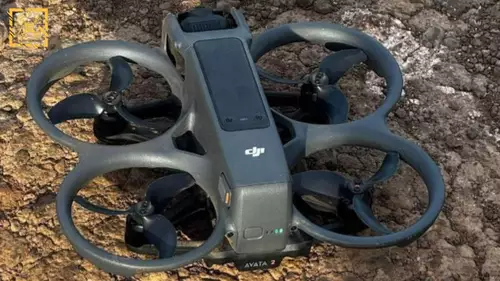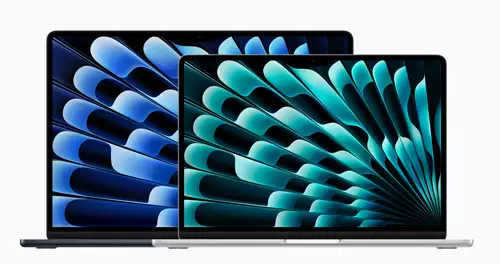Frage von Nightfly!:
Moin moin!
I just problem with an additional audio recording from the MiniDisc.
It's about a piano concert recording
DV Film and MD-recording are "different Async.
Ie:
- S.Anfang the DV film is the MD audio recording too fast
- S.end the DV film is the MD audio recording is too slow
We see this well s.Tastenanschlag sound event, where the delay affects only a few frames (2-4 frames).
Question: 1.) If the problem s.der DV camera, so s.dem Bandurchlauf?
(Age appearance of a Sony PC120?)
2.) Could s.einer Nachbearbeitungdes MD audio equipment with a noise filter are (would be new to me that this shift results)
3.) Is it s.MD device (Age phenomenon??)
I'd be very happy about a clarification!
Thanks in advance
Nightfly!
Antwort von beiti:
 - S.Anfang the DV film is the MD audio recording too fast
- S.Anfang the DV film is the MD audio recording too fast
- S.end the DV film is the MD audio recording is too slow A asynchronicity can only appoint the Comparison of early and late, not separately for each post. So if you sound so investors that he is s.Anfang synchronously, asynchronously s.end he can be (or conversely, stop). So what did you get synchronized?
Is it s.MD device (Age phenomenon??) No.. MD recorders are just like gequarzt DV camcorder and run very evenly (unless there are dropped frames). A difference of 3 or 4 frames to 1 hours is still possible, because synonymous crystal-accurate clock no 100 percent identical (yes running is known of watches). That must stop, if it strikes, compensate by adding or removing a short piece of music (s.unauffälliger body, such as breaks).
Antwort von Nightfly!:
 - S.Anfang the DV film is the MD audio recording too fast
- S.Anfang the DV film is the MD audio recording too fast
- S.end the DV film is the MD audio recording is too slow A asynchrony can be compared only to designate the beginning and end of, not separately for each post. So if you sound so investors that he is s.Anfang synchronously, asynchronously s.end he can be (or conversely, stop). So what did you get synchronized?
First, a very pregnant body in the first half. Therefore:
Beginning mid ----------------------- ------------- End
Cons s.Zeit to film ------- --------------- Ok Pros s.Zeit on film
So I had to correct only the first and last piece.
YOU have obviously generel sync with legal s.Anfang the end.
Is it s.MD device (Age phenomenon??) No.. MD recorders are just like gequarzt DV camcorder and run very evenly (unless there are dropped frames). A difference of 3 or 4 frames to 1 hours is still possible, because synonymous crystal-accurate clock no 100 percent identical (yes running is known of watches). That must stop, if it strikes, compensate by adding or removing a short piece of music (s.unauffälliger body, such as breaks). Ultimately, the so geisst that MD_recorder is slower than the gequarzt Camera.
Ok I did not even know.
THANKS ;-) Can that somehow the purchase of new equipment to identify where there are the tolerances?
Greeting, Nightfly!
Antwort von beiti:
 Ultimately, the so geisst that MD_recorder is slower than the gequarzt Camera.
Ultimately, the so geisst that MD_recorder is slower than the gequarzt Camera.
Ok I did not even know. No, you can not say that. It rather depends on whether the same recorder when playing faster or slower than running in the recording.
But there are other factors. If you are an MD recorder with USB and have the data on the hard drive 1:1 dub, there are other conditions than if you rebuild the MD recording via the analog-in sound card digitalisierst.
If you take over the data 1:1, is synonymous nor the upsampling (of 44.1 kHz to 48 kHz) is added, which can also cause a temporal variation.
Antwort von Nightfly!:
 ...
...
It rather depends on whether the same recorder when playing faster or slower than running in the recording.
...
Despite common Quarzung there are differences in the playback speed for recording? If the s.den tolerances in the Quarzung or has a different technical background?
Gruß,
Nightfly!
Antwort von beiti:
 If the s.den tolerances in the Quarzung or has a different technical background?
If the s.den tolerances in the Quarzung or has a different technical background? I suspect quartz tolerances, because I just do not want to believe that one and the same device suddenly running much slower. (For analog tape deck was common, but they were not gequarzt.)
My practical experience related to the MD recordings I've recorded on analog sound card. My explanation was that the sound card and / or the entire PC from a slightly different Quarzung camcorder had been receiving. If the MD-data directly with USB transfers, the same applies, except that the time base is then applied even in the recorder.
The editing program is certainly both treated mathematically equal to (1 seconds constructed 48,000 samples or 25 frames) is equivalent, but then the error has long been there.
Purely experimental, one could test whether the error disappears when the MD-recording via analog input into the camcorder and then transferred via Firewire as video transfer to PC. Since the time base would actually compensate.
Antwort von Nightfly!:
 ... Purely experimental one could test whether the error disappears when the MD-recording via analog input into the camcorder and then transferred via Firewire as video transfer to PC. Since the time base would actually compensate.
... Purely experimental one could test whether the error disappears when the MD-recording via analog input into the camcorder and then transferred via Firewire as video transfer to PC. Since the time base would actually compensate. Could you try it next time!
;-) Nightfly
Antwort von Markus:

Hi,
I would also tap the different sampling rates as the cause for the time shift. Separate recordings with up to four camcorders (both 16-bit, 48 kHz) and a separate sound recording (in 44.1 kHz) showed the following: The camcorder was still an hour synchronously, a separate audio recording is not.
I then did the sound recording is defined as the base and the harsh image editing individual frames or inserted omitted. This can be seen no more.
Antwort von Detati:
 ...
...
I would also tap the different sampling rates as the cause for the time shift. Separate recordings with up to four camcorders (both 16-bit, 48 kHz) and a separate sound recording (in 44.1 kHz) showed the following: The camcorder was still an hour synchronously, a separate audio recording is not.
.... This would mean that the above described way:
Analog output s.Camcorders MD
Camcorder firewire s.Calculator 48kHz
behebn the problem should be!
Nightfly!
Antwort von Markus:

If it were possible. It depends again from the quality and accuracy of the D / A converter (MD recorder) or the A / D converter (camcorder).
I'm curious what you have to report!
Antwort von steveb:

small tip ..... you still can mehrspuraudioeditoren with zb zb like Samplitude (goes synonymous with old versions) to solve such problems synonymous quite simple (pragmatic). They copied the original track (the original) on a second track and is working with a simple quick transition. Then you cut the first track s.and lies down again at the next asynchrony s.and again makes an Aperture. Since Samplitude offers a video-display option, one can start cutting it fairly well.
Antwort von Frank B.:

Hello,
I had exactly the same problem with the synchronicity of my MD recordings. I also synonymous already written a few times in the forum. My guess is synonymous in the direction of sample rate as the cause (in) the time differences. With DAT and HD footage was all onSeit which I use for longer recordings prefer this recorder. The gibts already partly priced on Ebay. MD, I just assume for a short interview.
Gruß Frank
Antwort von beiti:
 I would also tap the different sampling rates as the cause for the time shift.
I would also tap the different sampling rates as the cause for the time shift. This, however, is again contrary to my observation of asynchrony, as I have digitized by the analog-out of the MD into the sound card, and either directly at 48 kHz.
But probably the Probem can occur s.verschiedenen bodies.
Antwort von Schleichmichel:

I may be wrong, but it would be inconceivable that ATRAC is the cause of this problem? (I should say that I am no friend of MiniDisc) With WAV recordings I had been synonymous) in long-term no such problems kHz (in spite of 44.1.
By the way ... it is better if the sound is so up to 2-3 frames latency. So we're taking synonymous perceive our world, when objects are a bit off next (think s.den balloon). If the sound is running before the visual event that does not fit the so consistent with our habit.
Antwort von beiti:
 By the way ... it is better if the sound is so up to 2-3 frames latency.
By the way ... it is better if the sound is so up to 2-3 frames latency. ) Who television to the DVB standard (no preference whether T, S or C receives, has long been accustomed to s.leichte asynchrony or angry about it every day. Slowly, I realize how such partially achieved significant misalignments. The problem might be related to the fact that variances add up. If both the Filmmakers' as synonymous, the TV technician based on the principle "sound better too late than too early" and every 3 frames causes latency, has been pinned to 6 frames - and then even my parents. ;)
Antwort von Schleichmichel:

Of course, I thought: If even a misalignment is unavoidable, then the sound should come after the Picture! Understand this is not such that it is generally better if the sound asynchronously running ... it's not sufficient.
Sorry
Antwort von steveb:
 I may be wrong, but it would be inconceivable that ATRAC is the cause of this problem? (I should say that I am not a fan of MiniDisc
I may be wrong, but it would be inconceivable that ATRAC is the cause of this problem? (I should say that I am not a fan of MiniDisc no. atrac is synonymous only an art "compression". This cuts to the recording inaudible frequencies "(please no discussion from whether audible or not).
Antwort von Schleichmichel:
 no. atrac is synonymous only an art "compression".
no. atrac is synonymous only an art "compression". Precisely BECAUSE it is a compression, I think it probably. It is indeed (at least for MP3) in a small data packets re-synthesis (with less audible, as is the covered with frequencies not be included) is subjected to, so the compressed file only an analogy to the original. It's easily conceivable that this may lead to small time fluctuations, which can be felt s.einer some length in this form.
With a WAV recorder, I had no such problems.









